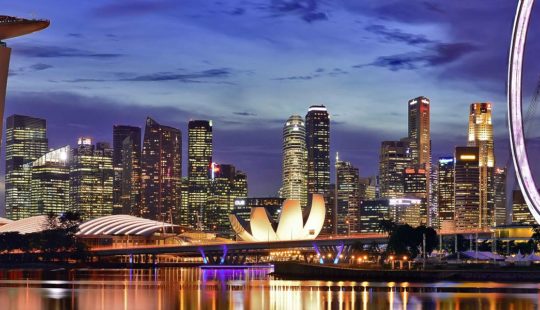Without question, COVID-19 is a disruptor that is challenging organizations and employees alike. It is also an unprecedented test and navigator to every aspect of how we live and how we build a successful future of work. Marking World Mental Health Day on October 10 is a good reminder to prioritize our holistic well-being — as individuals and organizations.
Mapping the Course in Uncharted Waters
The world we currently work and live in is mostly uncharted. As humans, we like to stay in our comfort zone and these enforced changes to societal living are causing stress for many. While employee stress poses a real risk for organizations, finding the best strategies as organizations and individuals to cope with stress is also an opportunity to explore and shape the future of work.
The recent Deloitte Human Capital Trends survey revealed that 96% of respondents believe organizations are responsible for employees’ well-being. SAP has been a front-runner in connecting a healthy culture with business success since 1972, putting customers and employees at the very center of any decision. Earlier in 2021, SAP was one of the first organizations to announce its Pledge to Flex, an entirely flexible and trust-based promise to provide a setup that fits every role, style, and location.
Employees Charting Future of Work
One thing is certain: the blurred line between work and private life is individualizing the future of work. Research from McKinsey estimated there will be four to five times more remote work than before the pandemic, which will prompt a large shift in the geography of work, workspaces, and soft skills needed to stay healthy and balanced in an autonomous virtual world.
Today, employers are at a critical time in strengthening employee’s sense of belonging, job satisfaction, and ownership of self-care, and at the same time provide the leadership framework of navigation to ensure sustainable business success.
“I am proud of the innovative KPIs around measuring healthy culture and health-related productivity loss that allow us to chart and track our course in the future of work,” says Christian Schmeichel, chief future of work officer at SAP. “Understanding and respecting people’s needs in regard to their health and well-being pays off as it keeps them happy and productive.”
Beacons and Early Warning Signals
Balancing the demands of work and private life is challenging, and stress symptoms can affect our body, thoughts, and feelings. Left unmanaged or out of control, stress can contribute to many health problems. Add an inactive lifestyle and maybe a sub-optimal work set-up at home, and you have the perfect storm for musculoskeletal pain, risk of toxic stress, presenteeism, burnout, or mental health challenges.
In the UK, stress, depression, or anxiety and musculoskeletal disorders accounted for about two-thirds of days lost due to work-related ill health before the pandemic (HSE), while the American Psychological Association’s survey “Stress in America 2021” reports people are experiencing their highest levels of stress since the beginning of the pandemic.
Setting Sail to ‘Lighten the Load’
Tightening the sails from Are You OK? mental health initiative, SAP is setting course for a six-week “get moving” campaign, helping employees create self-awareness and take action for their health. SAP is proud to continue partnering and supporting EU-OSHA healthy workplaces campaigns.
Its current campaign, “Lighten the Load,” empowers people to prevent, alleviate, or recover from the stresses we feel on our own shoulders every day. The employee campaign has over 40 live events for employees to discover and experience new ways to lighten their load by signing up for physical activity challenges, demonstrations, and practice sessions with ergonomic, physiotherapy, and physical fitness experts. We wish for our employees to discover their way to lighten the load and reach their full potential in work and private life.


